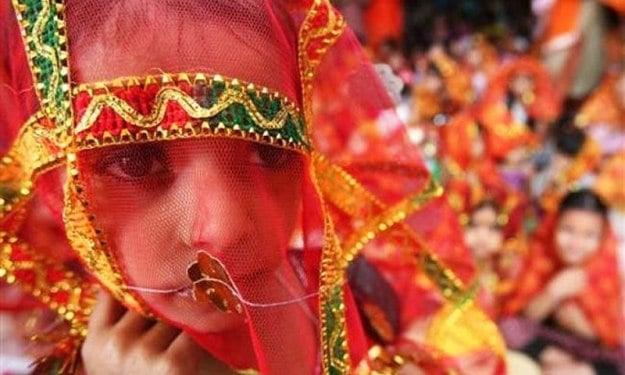Islamabad:
The Islamic Ideology Council (CII) has rejected a bill that prohibits marriage under 18 in Islamabad, describing it as non -Islamic. The Council has also declared the Draft Law on Child Marriage Restriction 2025, presented by the Khyber Pakhtunkhwa (KP) government, in conflict with Shariah.
On Tuesday a CII meeting was held by Dr. Raghib Hussain Naemi.
According to the statement issued after the meeting, the Council discussed the bill presented by MNA Sharmila Faruqi of the PPP and approved by the National Assembly on May 17.
The bill was introduced with the object to stop, discourage and finally eradicate the concept and phenomenon of children’s marriages. He said that no Nikah registrar will register a marriage where one or both contracting parties are for less than 18 years.
He declared that whoever influences or did not comply with the subsection (1) and (2) of the bill, can be punished with a simple prison for a term that will not be more than a year and with a fine that amounts to RS100,000, or both, unless he demonstrated that he had reasons to believe that marriage was not a child marriage.
The bill sought additional punishment for male adults over 18 who married a child. “Whoever is a man superior to the eighteen years, contracts a child marriage will be punished with a rigorous imprisonment that can extend to three years but will not be less than two years and it will be likely that it mullets,” he said.
The ICI pointed out that the clauses that define marriage under 18 as sexual aggression and prescription punishments do not align with Islamic mandates. The statement clarified that the bill to prohibit child marriage was not sent to the ICI for review before the legislation.
The Council also found that the 2025 child marriage restriction bill presented by the KP government is contradicted by Shariah.
The ICI emphasized that talasia tests before marriage must be optional, non -mandatory, adding that, according to Islamic teachings, marriage must be kept free of unnecessary complications.
The Council also expressed concern about irresponsible reports of judicial decisions. He clarified that forcing the bride’s family to provide dowry articles is contrary to Islamic teachings.
The statement also said that women should have the right to choose whether to keep the domicile of their husband’s area or that of their parents after marriage.
He decided that after the end of IDDAT, the mandatory waiting period, the husband is not financially responsible for the divorced wife. In the Islamic Shariah, IDDAT is also observed in case of husband’s death.
The ICI also proposed amendments to clause 7 of the bill of laws of the Muslim family (amendment) 2025, which was sent by the Ministry of Religious Affairs, and formed a committee to write a new version of the law.
The meeting also considered questions received from the National Responsibility Office (NAB), as well as the problems related to moving (Islamic finances), housing schemes and investment issues.




